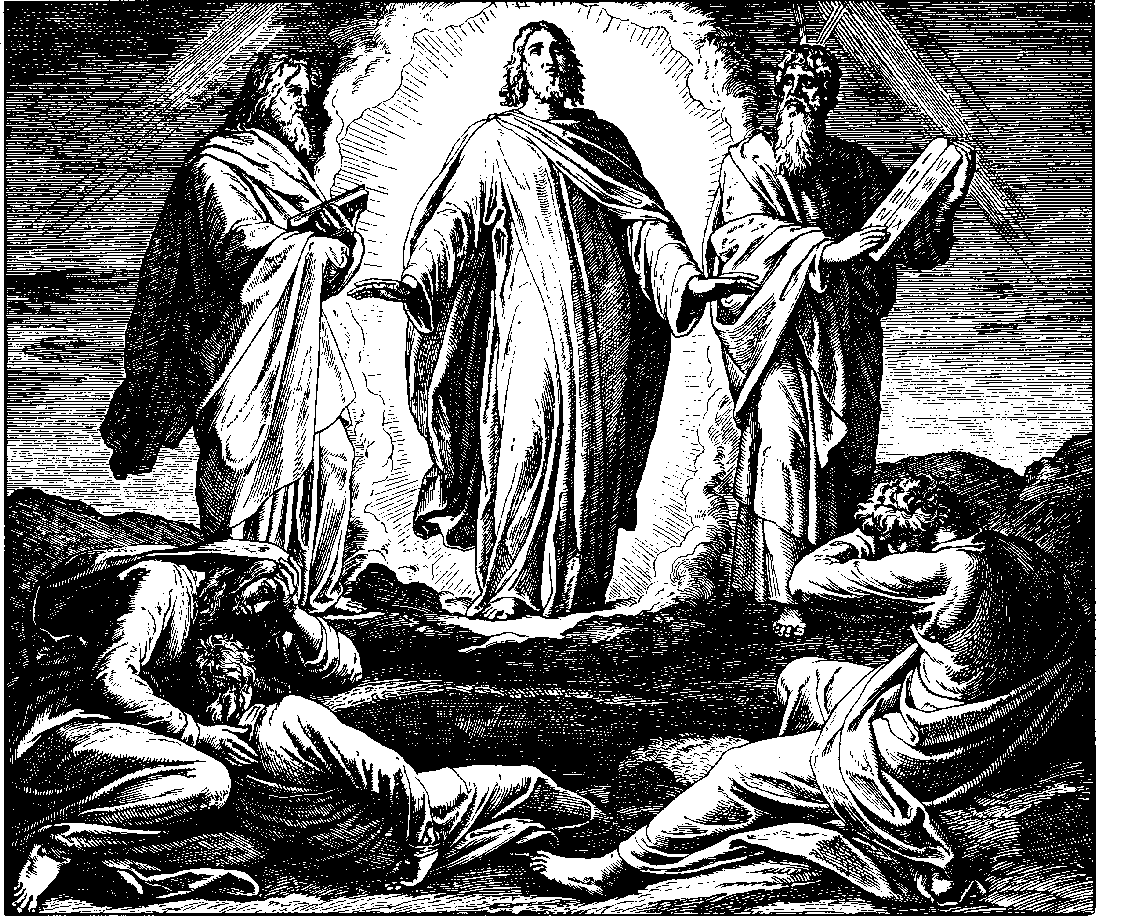Mark 9:2-13 — 2 And after six days Jesus took with him Peter and James and John, and led them up a high mountain by themselves. And he was transfigured before them, 3 and his clothes became radiant, intensely white, as no one on earth could bleach them. 4 And there appeared to them Elijah with Moses, and they were talking with Jesus. 5 And Peter said to Jesus, “Rabbi, it is good that we are here. Let us make three tents, one for you and one for Moses and one for Elijah.” 6 For he did not know what to say, for they were terrified.7 And a cloud overshadowed them, and a voice came out of the cloud, “This is my beloved Son; listen to him.” 8 And suddenly, looking around, they no longer saw anyone with them but Jesus only.
9 And as they were coming down the mountain, he charged them to tell no one what they had seen, until the Son of Man had risen from the dead. 10 So they kept the matter to themselves, questioning what this rising from the dead might mean. 11 And they asked him, “Why do the scribes say that first Elijah must come?” 12 And he said to them, “Elijah does come first to restore all things. And how is it written of the Son of Man that he should suffer many things and be treated with contempt? 13 But I tell you that Elijah has come, and they did to him whatever they pleased, as it is written of him.”
What we discovered from Mark 9:2-13, is that the disciples and all of Judaism took a buffet approach to the OT, only picking up what seemed appetizing, and then processed everything through that partial body of truth. This could only create erroneous conclusions, despite the fact they saw Jesus transformed before them and a voice from the clouds commanding them to listen to the Son of God. Nevertheless, they refused to listen to what he taught about the fundamental characteristic of his first coming—to give his life as a ransom for many (Mark 10:45). Listen to James Edwards regarding this glorious mountaintop experience: The uniqueness of the transfiguration of Jesus deprives it of any adequate external standard or frame of reference by which to judge it. Given this fact, the judgment that readers make about the nature of the transfiguration will ultimately derive from their estimate of Jesus himself.[1]
The disciples had a faulty estimation of Jesus and this is common even today. But the true Jesus is not one who promises peaceful and prosperous circumstances in this life. There is a Jesus invented by man like that who promises those things, but it’s not the Jesus of the Bible; it’s not the Jesus on the Mt. of Transfiguration; it’s not the Jesus who guaranteed hardship for his followers.
What the disciples don’t understand is that sharing in the suffering of Christ is the pathway to share in his glory—Rom. 8:17 and if we are children, then we are heirs—heirs of God and fellow heirs with Christ, provided we suffer with him in order that we may also be glorified with him.
Paul isn’t teaching that there is some minimum level of suffering required to get into heaven. It means that we must not turn our backs on Christ when the temperature in our life rises; it means that we must maintain faithfulness to the Lord’s ways even in the midst of difficulty. We do this by denying ourselves that which we determine will bring personal gain. That’s what Paul did in Php. 3 and listen to what he says in v.10: he counts everything else as refuse in order 10 that I may know him and the power of his resurrection, and may share his sufferings, becoming like him in his death, 11 that by any means possible I may attain the resurrection from the dead.
Once again, sharing in his suffering leads to sharing in his glory.
So we can just bury our head in the sand of personal gain like the disciples and just live like the rest of the world, which has eternal consequences OR deny ourselves earthly prosperity, preservation and promotion, take up our cross and incur unspeakable, eternal rewards. There is no future with Christ unless there is present, faithful suffering likeChrist. He paved the way and he provides the way for us to be faithful. So let us go outside the camp and bear his reproach. He who promised us glorious things is faithful.

